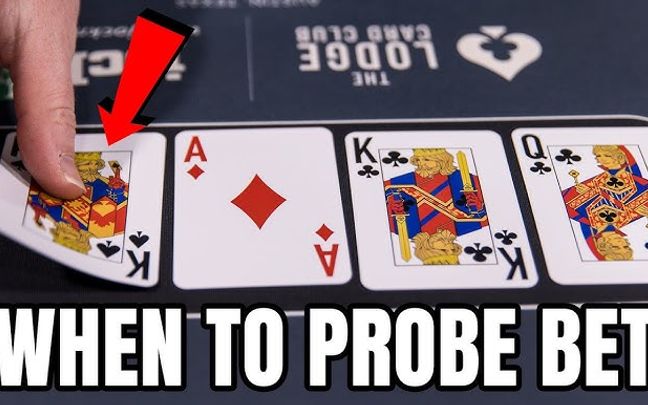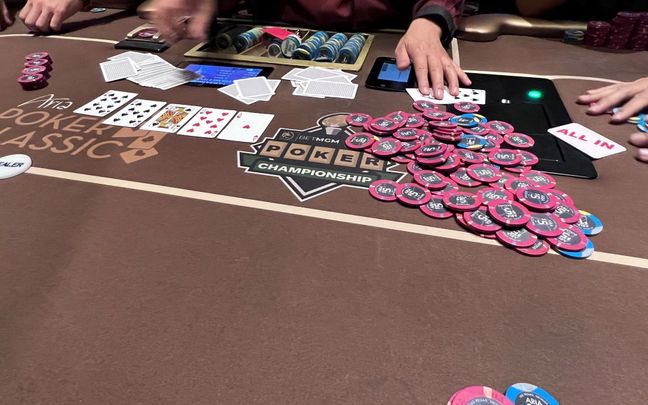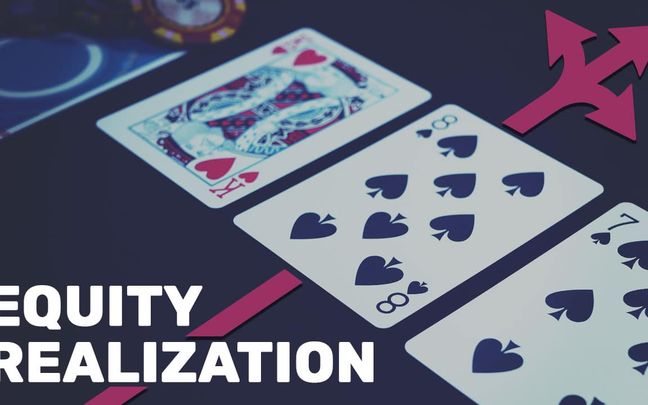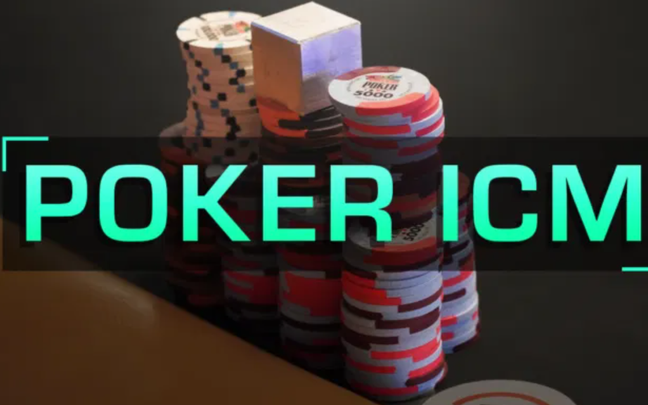Many poker beginners often wonder what ante is in poker. In contrast to blinds, ante is a concept of a more global nature, requiring the participation of all players at the table. Ante is not only a mandatory bet, but it also brings special strategies and situations that you need to face and handle.

What is an ante in poker?
To explain the definition of an ante in poker in the simplest terms, it is a mandatory bet that all players must place before a hand begins.
Antes are typically used in later stages of tournaments or in certain poker variations. The main purpose of the ante is to ensure that there is money in the pot from the start of the hand, creating an incentive for players to engage in the game.

Key Characteristics of the Ante in Poker
After understanding the basic concept of an ante in poker, let's explore its key characteristics.
The ante is an important concept in poker, with distinctive features compared to the blind. Placed before the cards are dealt, the ante is a mandatory bet that all players at the table must contribute. Unlike the blind, where only a few players have to post bets, the ante ensures that every player contributes to the pot from the beginning, establishing a universal and fair betting foundation for everyone.
Although the ante is typically smaller than the blind, its primary purpose is to increase the pot size without significantly depleting each player’s chips. These small contributions accumulate to create a substantial pot, making the prospect of winning more enticing and driving competitive play among the participants.
In poker tournaments, antes are often introduced during the later stages of play. This not only accelerates the pace of the game but also adds an extra layer of challenge and excitement to each hand. By requiring every player to contribute to the pot, the ante encourages more active participation and decisive action, especially from players in middle and late positions, making each decision more critical than ever.
The ante is not just a part of the betting structure in poker, but also a key factor in enhancing the excitement and intensity of every hand. By ensuring fairness and promoting engagement, the ante plays an essential role in shaping the nature of the game and creating memorable experiences for poker players.

Specific Benefits of the Ante in Poker
In poker, the ante brings numerous advantages not only to the players but also to the overall structure of the game. These benefits contribute to making the game more exciting, strategic, and challenging. Below is a detailed analysis of the benefits of the ante in poker.
Increased Excitement and Action
One of the most obvious benefits of the ante is the increased excitement and action in each hand. When every player is required to make a mandatory bet, the pot becomes larger from the start, providing a strong incentive for players to get involved in the hand.
A bigger pot from the outset makes the prospect of winning more appealing, encouraging players to engage actively in the game rather than just sitting back and waiting. This increases the pace and rhythm of the game, making it more thrilling and intense.
Encourages Participation
The ante forces players to participate in the hands, even when they don't have strong cards. This reduces the tendency for passive play, where players only wait for the best hands.
By ensuring that everyone has chips in the pot, the ante encourages players to engage in betting rounds, creating a more dynamic and strategically diverse game.
Balances Playing Strategies
With an ante in play, players must adjust their strategies. They can't simply wait for strong hands but must actively participate in hands to protect their chips. This requires players to be more flexible in their approach to the game, balancing between offensive and defensive strategies. Players must know when to bet, when to call, raise, or fold to optimize their chip management.
Speeds Up the Game
The ante helps speed up the game. When everyone has chips in the pot, hands progress faster as there is more motivation for players to bet and participate in the action. This is particularly important in tournaments, where time is a crucial factor. A faster pace helps the tournament run smoothly and finish in a reasonable timeframe.
Encourages Bluffing and Creative Strategies
With a larger pot right from the start, players have more incentive to employ bluffing and semi-bluffing strategies. This makes the game more interesting and unpredictable.
Bluffing and semi-bluffing are crucial elements in poker, allowing you to win even when you don't have the strongest hand. The ante creates opportunities for these strategies to be effective, increasing the tactical complexity of the game.
Creates Psychological Pressure
The ante creates psychological pressure on players, forcing everyone to participate in the hands if they don't want to lose their chips passively. This pressure can lead to rushed or incorrect decisions from opponents, creating opportunities for savvy players to exploit.
Having to post an ante each hand generates continuous tension, requiring you to stay focused and manage your chips carefully.
Improves Skill Levels
The ante pushes players to develop and improve their skills. You need to know how to read opponents' psychology, manage your chips effectively, and use the right strategies to gain an advantage.
Additionally, you must learn to optimize your decisions based on factors such as your position at the table, opponents' actions, and the specific situation of the hand. This helps raise your level of play, making the game more competitive.
Enhances Fairness and Balance
The ante contributes to creating a more balanced and fair playing environment. By requiring everyone to make a mandatory bet, it ensures that no one can just sit back without participating in the action.
This creates a level playing field where everyone has a chance to compete for the pot. It also helps prevent the "bottleneck" situation where some players simply wait for strong hands without getting involved in the game.
Generates Rich Strategic Situations
With the ante, you face more complex strategic situations. You must decide when to attack, when to defend, and when to bluff to win the pot.
These situations require you to think deeply and use your skills to make the right decisions. This makes the game more challenging, attracting skilled players who enjoy competition.
Increases Entertainment Value
Finally, the ante makes poker more entertaining and engaging. Having a big pot right from the start makes every hand valuable, creating excitement and drama throughout the game. This appeal not only draws in players but also makes poker a popular and widely enjoyed form of entertainment worldwide.
The ante plays a crucial role in making poker more exciting, strategic, and enjoyable. It not only ensures that there is money in the pot from the start but also creates motivation and pressure for players, encouraging everyone to participate in the hands and use diverse strategies. Understanding the benefits of the ante will help you develop more effective playing strategies and maximize your advantage in each hand.

In conclusion, the ante is an integral part of poker's betting structure. You need to understand what an ante is in poker because it provides fairness, promotes active participation, and increases competition in each hand. By forcing each player to contribute to the pot from the beginning of the game, ante not only enriches the poker experience, but also creates exciting and unpredictable hand battles.





























